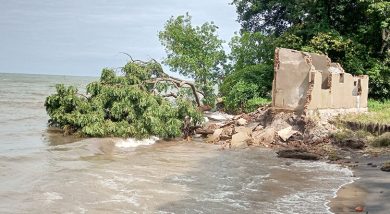Statement by IMF Managing Director Christine Lagarde at the Conclusion of A Visit to Malawi
 Press Release No. 13/2 – January 5, 2013.
Press Release No. 13/2 – January 5, 2013.
Ms. Christine Lagarde, Managing Director of the International Monetary Fund (IMF), made the following statement today in Lilongwe:
“It is a great pleasure to be in Malawi for my first visit as Managing Director of the IMF. I had the privilege to meet President Joyce Banda and her cabinet, as well as the Governor of the Reserve Bank of Malawi. I also had the opportunity to exchange views with members of parliament, development partners, and business and civil society representatives, including a group of outstanding women leaders. Today, I visited a group of women supported by the Microloan Foundation of Malawi. I was particularly inspired by their resilience and entrepreneurship.
“Malawi’s recent economic situation has been difficult. Drought and lower-than-expected foreign exchange earnings have dampened growth and contributed to a spike in inflation in 2012. Notwithstanding the current hardships, many of my interlocutors were confident that the ongoing reforms will turn the economy around—an optimism that I share.
“During my discussions, I congratulated President Banda on the bold economic policies of its administration, including the liberalization of the foreign exchange market. I welcomed the government’s efforts to address the unforeseen challenges through her continued commitment to economic reforms. Malawi has already made significant progress in addressing the serious imbalances that were hampering economic growth just a few months ago. I also stressed the need to stay the course, while putting in place social protection programs to alleviate the impact of the adjustment measures on the poorest households. Continued assistance from development partners will be essential to support the ongoing reforms.
“Looking ahead, we at the IMF will continue to support Malawi with policy advice, financial assistance under the program supported by the Extended Credit Facility, and technical assistance and training to strengthen capacity in macroeconomic management. Malawi, like all of Sub-Saharan Africa, has become increasingly integrated into the rest of the world. Key risks today include the global economic uncertainty and rising food prices. In this context, it will be essential for African countries to have strong macroeconomic frameworks, improve institutional capacity, and ensure sustainable and inclusive growth in order to maintain the impressive economic performance of the last 10 years. The IMF will continue to assist them in these vital efforts.”





